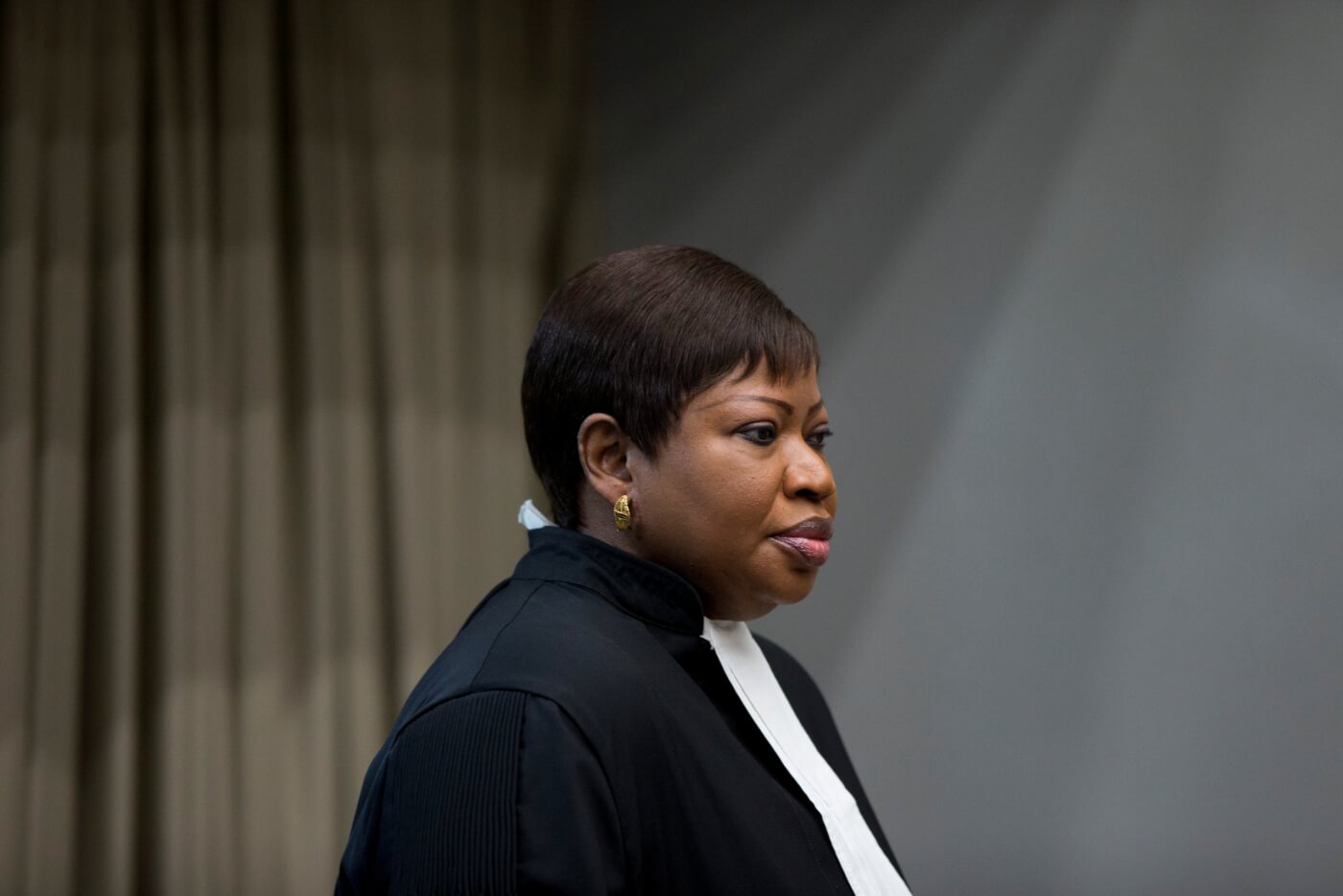The International Criminal Court (ICC or the Court) has announced it has the jurisdiction to investigate war crimes in Palestine. The Pre-Trial Chamber 1 of the Court released a statement on 5 February that it had decided, by majority, “that the ICC’s territorial jurisdiction in the Situation on Palestine, a State party to the ICC Rome Statute, extends to the territories occupied by Israel since 1967, namely Gaza and the West Bank, including East Jerusalem.”
In a preliminary examination completed in December 2019, ICC chief prosecutor Fatou Bensouda determined that all the statutory criteria of the Rome Statute was met for the opening of an investigation into crimes committed in Palestine. However, as Palestine has the status of an occupied territory, rather than a sovereign state, the ICC judges had to first confirm if the Court has jurisdiction. The decision follows confirmation that the Court does have that jurisdiction. The Rome Statute is the founding treaty of the ICC, signed by over 120 countries, and establishes the four core international crimes: genocide, crimes against humanity, war crimes, and the crime of aggression. The ICC’s announcement noted that it is not adjudicating a border dispute or prejudging the question of future borders, it is simply defining that the Occupied Palestinian Territories are under its jurisdiction.
“The Chamber found that, regardless of its status under general international law, Palestine’s accession to the Statute followed the correct and ordinary procedure and that the Chamber has no authority to challenge and review the outcome of the accession procedure conducted by the Assembly of States Parties. Palestine has thus agreed to subject itself to the terms of the ICC Rome Statute and has the right to be treated as any other State Party for the matters related to the implementation of the Statute.” – ICC statement.
Bensouda has said she would investigate both war crimes committed by the Israeli military and crimes committed by Palestinian armed groups such as Hamas, who were accused of “intentionally directing attacks against civilians”, according to her office. The Palestinian Authority (PA) had initially petitioned the Court, and welcomed the investigation into Palestine. The group, who rival Hamas, would see any prosecution of Israeli military figures or Israeli officials as a victory.
On 3 February 2021, the Israeli army spent three days demolishing homes and shelters in Humsa al-Fawqa in the Jordan Valley, leaving the Palestinian residents homeless. Over 70 shelters and tents were destroyed, some of which contained livestock, that the locals depended on for their livelihood. Almost 80 individuals are now displaced, including 40 children, in the harsh winter and with the threat of COVID-19.
Responses to the announcement
The ICC’s decision to include Occupied Palestinian Territories in its jurisdiction is seen as a win by human rights groups. The BDS movement and Jewish Voices for Peace praised the decision, and called on the ICC to “stop dragging its feet, resist pressure from the US, Israel and Western countries and immediately do its job.”
Human Rights Watch said that the decision “opens a long-awaited path to justice for Israeli and Palestinian victims of serious international crimes.” Associate International Justice Director Balkees Jarrah added: “it’s high time that Israeli and Palestinian perpetrators of the gravest abuses – whether war crimes committed during hostilities or the expansion of unlawful settlements – face justice.”
The PA’s civil affairs minister Hussein al-Sheikh hailed the decision on Twitter. He tweeted that the ruling was “a victory for rights, justice, freedom and moral values in the world.”
Israel’s Prime Minister Benjamin Netanyahu criticised the Court adding that the ICC’s investigation into “fake war crimes” was “pure anti-Semitism.” In a video statement, he hit back at the Court for what he thought was “outrageously” claiming “that when Jews live in our homeland, this is a war crime.” He also argued that the ICC refused to investigate brutal dictatorships like Iran and Syria who “commit horrific atrocities almost daily.” Throughout the preliminary investigation, his government argued that Palestine is not a fully fledged state and so should not be allowed to petition the Court.
Israel itself is not a signatory to the ICC, but the Court’s mandate is to investigate people, regardless of whether their country is a signatory or not. Netanyahu is already currently under investigation for corruption in Israel. In his trial on 8 February, he entered a plea of not guilty for accusations of bribery, fraud and breach of trust (accused in three separate cases). This plea is consistent with his continuous denial of all charges against him, which he calls a “witch-hunt” by his opponents. Under Israeli law he is not required to resign despite being under investigation, but hundreds of protesters gathered outside the district courthouse calling for him to step down. His trial, and now the ICC’s announcement, comes just six weeks before the Israeli election.
The USA also expressed concern at the Court’s decision. Ned Price, a State Department spokesman, gave a statement against the ICC.
“We do not believe the Palestinians qualify as a sovereign state, and therefore are not qualified to obtain membership as a state or participate as a state in international organizations, entities, or conferences including the ICC,” he said.
The US under Donald Trump’s presidency had fraught relations with the Court, with Trump issuing sanctions against Bensouda in retaliation to the Court’s potential investigation into the conduct of US troops in Afghanistan. Since that investigation has since been abandoned, the Biden administration has put the sanctions under review, but still disagrees with the ICC’s announcement as Israel’s biggest ally. It is yet to be seen whether Netanyahu will impose similar sanctions of any kind in protest to the ICC’s decision.

